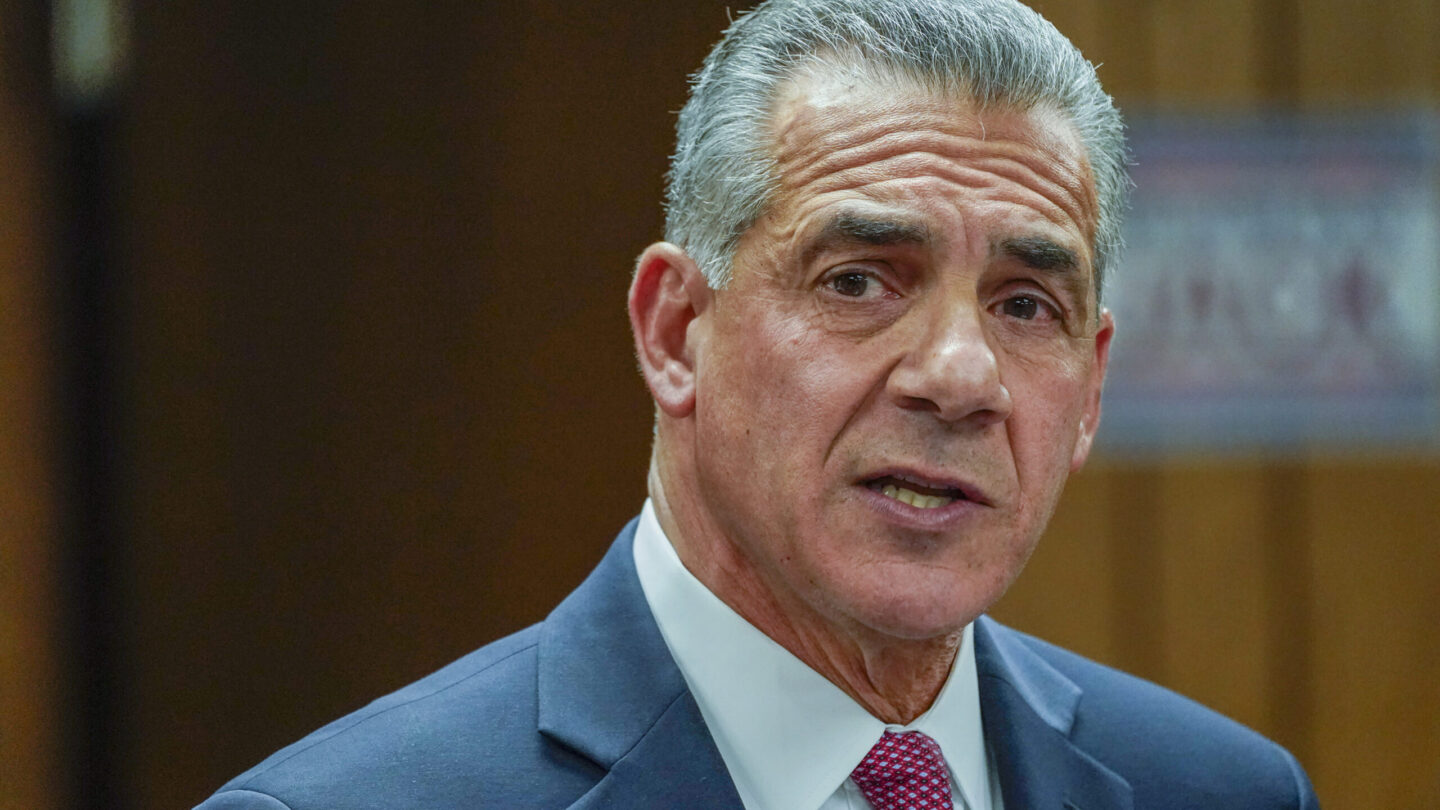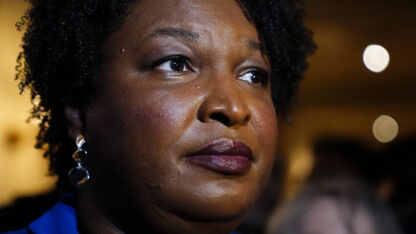What Mark Sheridan was asking for used to be commonplace.
He says he just wanted a little more time.
Sheridan, a longtime Republican campaign attorney, represented the GOP candidate for governor in New Jersey, Jack Ciattarelli, during his campaign last year.
New Jersey’s 2021 election followed a story similar to 2020’s: On election night, the Republican, Ciattarelli, was ahead, but as more votes were counted across the state, the race tightened and then flipped in favor of Democrat Phil Murphy.
Six days after Election Day, tens of thousands of votes remained uncounted, and it was still possible those votes could move Ciattarelli into a position where his campaign would want a recount.
For that reason, Ciattarelli held out from conceding the race, which — before 2020 and former President Donald Trump’s sustained campaign against the U.S. voting system — may have gone mostly unnoticed. (Trump still has not conceded that election and continues to insist without evidence that he won.)
But post-2020, candidate concessions, as well as the role they play in a functioning democracy, have taken on a new and prominent spotlight.
Murphy, Ciattarelli’s opponent, called the decision to wait “incredibly dangerous.”
Sheridan, Ciattarelli’s campaign attorney, was in the awkward spot of explaining to reporters that the campaign was waiting for more votes to be counted before conceding, without seeming like the campaign was calling the election’s integrity into question.
Sheridan didn’t believe Trump’s lies about election fraud, but he could sense that the Ciattarelli campaign was being lumped in the same category.
“The pressure started to mount,” Sheridan said. “I made it clear to [reporters] that we’re simply waiting to see where the vote total takes us. And I had no interest in becoming Rudy Giuliani standing in front of a mulch pile, making crazy statements about election fraud,” he said, referencing Giuliani’s infamous appearance at a landscaping business in Philadelphia.
Ciattarelli conceded the race a few days later — 10 days after Election Day.
But experts say the pressure that surrounded that decision and the intense scrutiny that came with it are a preview of 2022, when concessions will be monitored like never before, as more candidates may feel emboldened by Trump not to admit defeat.
No requirement to concede
The concessions process — when a losing candidate admits defeat in an election, often in a speech and with a phone call to the winning candidate — may be the most important part of democracy that isn’t enshrined anywhere in law.
“Concessions are a norm,” says Amel Ahmed, a political science professor at the University of Massachusetts Amherst. “There is a legal requirement to vacate office, but that’s the only legal requirement. Concession is just a ritual.”
The reason the U.S. celebrates Inauguration Day with a parade and with pomp and circumstance, Ahmed says, is because each transfer of power in a democracy is almost like a leap of faith for the entire institution.
In more fragile democracies, the time after election day is a delicate, dangerous time, so a concession goes a long way toward calming a losing candidate’s supporters.
“For any of us who study democracy, it is that moment where you just hold your breath,” Ahmed says.
And over the past few years, since Trump began his misinformation campaign against U.S. voting, experts in the U.S. have been holding their breath a lot.
Republican candidates like California’s Larry Elder have used tactics similar to Trump’s in the time leading up to Election Day, leading to fears that they would similarly question the results afterward if they lost.
“So there are all sorts of reasons why the 2020 election, in my opinion, was full of shenanigans,” Elder said before the gubernatorial recall election last year in California. “And my fear is they’re going to try that in this election right here in recall.”
Elder did concede after he lost, as did Democrat Terry McAuliffe in the governor’s race in Virginia, in the other high-profile contest of 2021.
But Matt Masterson, who oversaw election security efforts within the Department of Homeland Security’s Cybersecurity and Infrastructure Security Agency leading up to Election Day 2020, says he expects more candidates to push the boundaries on concessions in 2022, since Trump faced so few consequences for not conceding in 2020.
“I think we have to assume that in some cases, hopefully not many cases, but the incentive structure suggests that perhaps in more and more cases, the loser will not accept [defeat],” Masterson says.
The time period after voting has stopped but before election results are certified is also considered among the most fertile times for conspiracy theories to flourish, because people are so hungry for information.
Sheridan, the Republican attorney in New Jersey, traced the current shift in concessions further back than Trump, although he did say the former president has worsened the problem.
“It goes back to Stacey Abrams. She still has never conceded that Georgia gubernatorial race,” Sheridan said. “So we’ve got … years of people calling into question elections any time they’re close.”
More than a week after voting ended in Georgia in 2018, Abrams gave a carefully worded speech in which she accused her opponent, then-Secretary of State Brian Kemp, of voter suppression, while also acknowledging he would be certified the victor of the election.
“You see, I’m supposed to say nice things and accept my fate. They will complain that I should not use this moment to recap what was done wrong or to demand a remedy,” she said. “And I will not concede because the erosion of our democracy is not right.”
Abrams is running for governor in Georgia again this year, potentially setting up a rematch of that election, should Kemp win the Republican nomination.
What election officials can do
For local election officials, waiting to see how candidates behave during the time when votes are being tallied is among the most unpredictable parts of the job.
Masterson says election officials essentially need to plan as if candidates won’t concede and be prepared to clearly communicate with voters about how the process actually works in case candidates lob accusations.
“We have to continue to push out information to voters to resist that mis- or disinformation,” he says.
David Maeda, the state elections director in Minnesota, says he was recently at a training conference for city clerks where one of the main themes was developing simple one-page explanations for voting processes.
Maeda says he hasn’t heard of local candidates in Minnesota avoiding concessions. “But that will be something to watch this fall,” he says.
Ahmed, of UMass Amherst, says if indeed more candidates decide not to concede in elections, that will be a sign of other dangerous things to come, like more political violence.
People need to believe they have a fair shot to compete in the democratic system, she says; otherwise they’ll be motivated to disrupt that system any way they can.
“Candidates don’t realize they’re really playing with fire,” Ahmed says.
Copyright 2022 NPR. To see more, visit https://www.npr.org.
9(MDAxODM0MDY4MDEyMTY4NDA3MzI3YjkzMw004))

9(MDAxODM0MDY4MDEyMTY4NDA3MzI3YjkzMw004))








